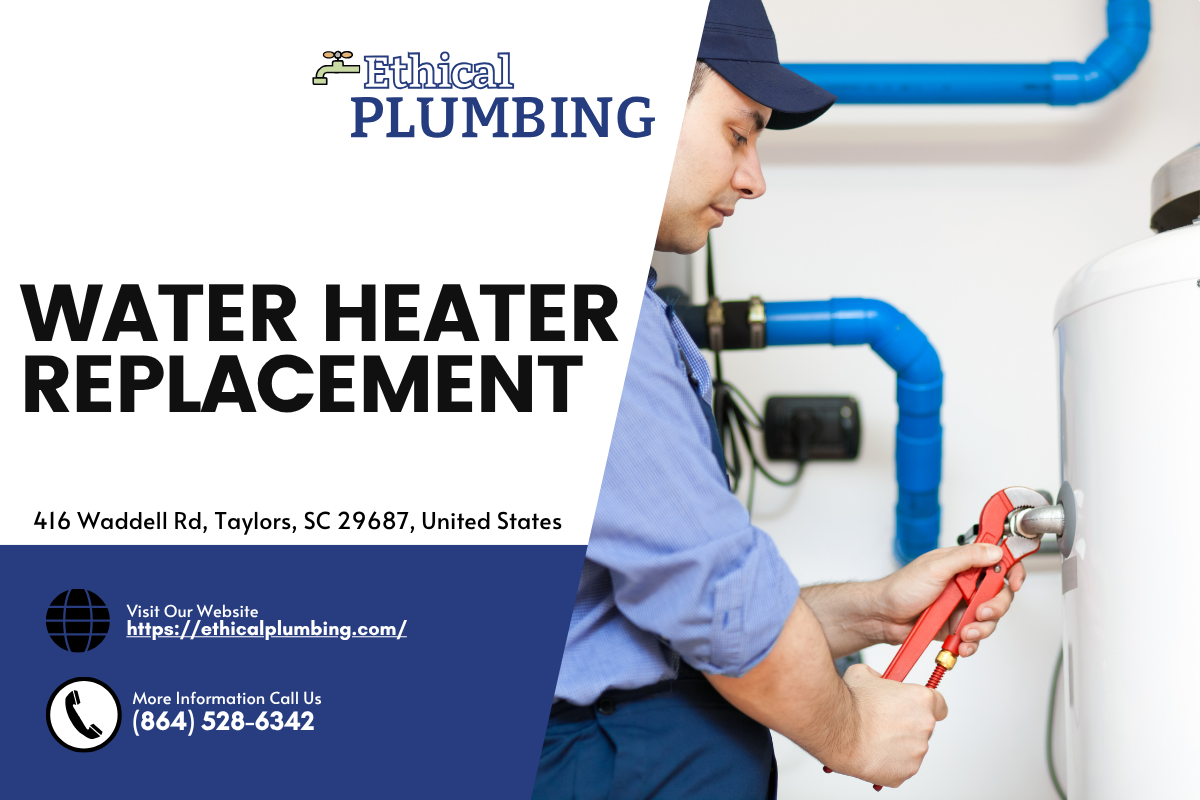
Introduction
Hot water heaters are a vital part of any home, providing the warmth and comfort we all need. However, hard water can significantly impact the efficiency of these systems. When it comes to maintaining your hot water heater, understanding the effects of hard water is crucial. In this article, we will delve into the various issues posed by hard water, explore solutions, and discuss when to seek professional help for water heater repair, installation, or replacement.
Addressing Hard-Water Issues That Affect The Efficiency Of Your Hot Water Heater
Hard water contains high levels of minerals such as calcium and magnesium. While these minerals are not harmful to health, they can create significant problems for your hot water heater. Over time, they accumulate as scale deposits inside the tank and plumbing fixtures. These deposits can lead to decreased efficiency, increased energy bills, and even a shorter lifespan for your water heater.
Understanding Hard Water: What Is It?
Hard water is defined by its elevated mineral content. The hardness level of water varies depending on geographic location and local water sources. Generally, if you notice white or cloudy residue on your faucets or in your dishes after washing, it's a clear indication that you're dealing with hard water.
How Does Hard Water Affect Your Hot Water Heater?
Scale Buildup: As minerals dissolve in hot water, they form scale inside the tank. This buildup acts as an insulating layer that reduces heat transfer efficiency.
Reduced Heating Efficiency: With scale buildup, your hot water heater has to work harder to heat the same amount of water, leading to higher energy consumption.
Corrosion and Damage: Minerals can also corrode internal components over time, leading to leaks or complete failure of the system.
Signs You Have a Hard Water Problem
- Cloudy or white spots on glassware Frequent need for water heater maintenance Increased energy bills Strange noises from the heater Fluctuating temperatures in hot water supply
Preventative Measures Against Hard Water Issues
Installing a Water Softener
One of the most effective ways to deal with hard water is by installing a whole-house water softener system before it enters your hot water heater. This device exchanges calcium and magnesium ions with sodium ions, reducing mineral buildup significantly.
Pros:
- Reduces scale accumulation Improves appliance longevity Enhances soap effectiveness
Cons:
- Initial installation cost Requires regular maintenance
Regular Maintenance Checks
Scheduling periodic checks with professionals offering water heater service ensures that any signs of hard-water damage are caught early on.
DIY Solutions for Hard Water Problems
Descaling Products: Using descaling agents specifically designed for hot water heaters can help remove existing mineral buildup. Vinegar Treatment: Running vinegar through your system can cleanse mineral deposits effectively. Flush Your Tank: Regularly flushing your tank helps remove sediment accumulations.When Should You Call For Expert Help?
If you've tried DIY methods without success or if you notice severe symptoms like leaks or rumbling noises coming from your unit, it might be time for professional intervention.
Water Heater Types and Their Vulnerability to Hard Water
Tank vs Tankless Water Heaters
Both types have their unique vulnerabilities regarding hard-water issues:
Tank Water Heaters:- More susceptible due to constant heating and cooling cycles. Larger scale accumulation potential.
- Less prone due to heating only on demand. Still require maintenance but typically have longer lifespans.
The Cost Implications of Ignoring Hard-Water Issues
Ignoring hard-water problems can lead not only to decreased efficiency but also increased costs associated with repairs or premature replacements:
| Issue | Estimated Cost | |------------------------------|-----------------------| https://privatebin.net/?bcd4c20a8d5ebbd0#2i8Fig2m2zG5fMuXrdjqAAiuSW4mzPA6PPEggrNK1kPC | Minor Descaling | $50 - $100 | | Major Repairs | $300 - $800 | | Full Replacement | $800 - $2,500 |
Choosing Between Repair and Replacement
When faced with hard-water issues affecting efficiency:
Signs You May Need Replacement:
- Age of unit exceeds 10 years Extensive corrosion present Significant drop in performance despite repairs
When Repair is Sufficient:
- Minor scale buildup Recent purchase (less than 5 years)
For residents in Taylors looking for specific services:
If you need immediate assistance with repairs or replacements: consider searching "water heater repair Taylors" or "water heater replacement Taylors" online.
Explore reputable companies specializing in tankless systems if you're considering modern alternatives.
Common FAQs About Hard Water and Hot Water Heaters
What is considered hard water?- Hard water typically contains more than 7 grains per gallon of dissolved minerals like calcium and magnesium.
- Yes, but it may diminish its efficiency over time due to scale buildup unless preventive measures are taken.
- It's advisable to flush at least once a year; however, homes with hard water may require more frequent servicing.
- Some manufacturers design models specifically optimized against mineral buildup; consulting local experts can provide tailored recommendations.
- No; vinegar is safe when used appropriately as a descaler but should be rinsed out thoroughly afterward.
- For homes consistently facing hard-water challenges, investing in a softener often pays off through prolonged appliance life and lower utility bills.
Conclusion
Addressing hard-water issues that affect the efficiency of your hot water heater should be prioritized for optimal performance and longevity of the appliance itself. Regular maintenance coupled with preventative measures like installing a softener can save homeowners significant headaches down the line—both financially and functionally.
In conclusion, whether you're facing minor inconveniences from mineral deposits or considering major repairs or replacements down the road—staying informed will empower you on this journey towards efficient home heating solutions! Always consult professionals who specialize in services like water heater repair, installation, replacement, service, maintenance, especially if you reside in areas like Taylors where localized expertise may be beneficial!